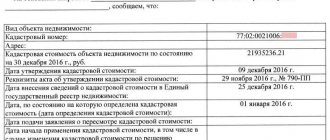What documents does the housing company have the right to demand from the apartment owner?
I bought an apartment in a new building. Now the housing company requires all residents (owners of apartments) of a new building to fill out forms indicating all the data on the apartment’s ownership certificate and indicating the passport details of the apartment owner.
Does the housing company have the right to demand such data?
December 14, 2013, 14:40, question No. 326786 Julia, Yekaterinburg
- , , , , , , , , , ,
300 cost of the issueissue resolved Collapse Online legal consultation Response on the website within 15 minutes Answers from lawyers (6) 33% fee received 542 answers 262 reviews Chat Free assessment of your situation Lawyer, city.
Tomsk Free assessment of your situation Hello, Julia! Depending on why such a form is being filled out. Confirmation of ownership of an apartment is a certificate of registration of title. Confirmation of your identity is a passport of a citizen of the Russian Federation. Thus, after filling out the data on the certificate of ownership and your passport data, your housing company will establish that you are the owner of a specific apartment. Thus, after filling out the data on the certificate of ownership and your passport data, your housing company will establish that you are the owner of a specific apartment. As a rule, such data is filled in on voting sheets at a general meeting of owners of a residential building in the form of absentee voting.
If such data is not filled in, it will not be possible to establish the legality of the meeting, since it will not be established whether you are the owner and whether you had the right to take part in the vote. Ballots that are not completed or not filled out in full will not be included in the vote count.
In addition, the same data is necessary for the housing company to conclude a management agreement or a residential building maintenance agreement with you.
Therefore, I don’t see anything criminal in the housing company’s demand to confirm your powers and rights regarding the apartment you own.
December 14, 2013, 14:47 1 0 fee received 42% 14512 replies 5979 reviews Chat Free assessment of your situation Murashko Vladimir Lawyer, Krasnodar Free assessment of your situation
- 5979 reviews
- 14512 replies
Hello Julia!
The housing complex has the right to demand data from the certificate of ownership of the apartment. It is better to give them a photocopy of this document. They need this document in order to know who exactly is the owner of the property, to whom to charge fees for utilities, etc.
As for your passport data, the law does not prohibit the presentation of this data by the owner of the property to the housing company, but it does not oblige it either.
Therefore, you have the right not to give them your passport information. For them, the data contained in the certificate of ownership is sufficient.
December 14, 2013, 2:49 pm 2 0 19621 replies 7800 reviews expert Chat Free assessment of your situation Lawyer,
Stavropol Free assessment of your situation
- expert
Hello!
Yes, you have the right. And this is applied in practice. Most often, they request a copy of the certificate of ownership in order to open a personal account for you to pay for services and to vote on the use and management of the common property of the house. Good luck! December 14, 2013, 14:57 1 0 25% fee received 1538 replies 1074 reviews Chat Free assessment of your situation Ivanov Sergey Lawyer,
Good luck! December 14, 2013, 14:57 1 0 25% fee received 1538 replies 1074 reviews Chat Free assessment of your situation Ivanov Sergey Lawyer, Orenburg Free assessment of your situation
- 1538 replies
- 1074 reviews
The management company has the right to demand such documents only if it was elected at a general meeting of homeowners as a residential complex. Very often, in practice, several companies fight among themselves and try to obtain documents before the general meeting and retroactively draw up a protocol on the election of the residential complex as the management company for this house.
Ask the representatives of the residential complex for the Minutes of the general meeting of residents on the choice of the management company - if it is available, you can show all the documents after concluding the Agreement on the management of an apartment building. December 14, 2013, 16:01 0 0 2822 responses 657 reviews Chat Free assessment of your situation Lawyer, Moscow Free assessment of your situation Hello Yulia!
Relations related to the processing of personal data carried out by legal entities and individuals using automation tools, including in information and telecommunication networks, or without the use of such means, if the processing of personal data without the use of such means corresponds to the nature of the actions (operations) performed with personal data using automation tools, or other systematized collections of personal data, and (or) access to such personal data is regulated by Federal Law dated July 27, 2006 N 152-FZ (as amended on July 23, 2013) “On Personal Data.” According to Art. 3 and Article 6 of the Law basic concepts: 1) personal data - any information relating directly or indirectly to a specific or identifiable individual (subject of personal data); 2) operator - a state body, municipal body, legal entity or individual, independently or jointly with other persons organizing and (or) carrying out the processing of personal data, as well as determining the purposes of processing personal data, the composition of personal data to be processed, actions (operations) performed with personal data data; 3) processing of personal data - any action (operation) or set of actions (operations) performed using automation tools or without the use of such means with personal data, including collection, recording, systematization, accumulation, storage, clarification (updating, changing), extraction, use, transfer (distribution, provision, access), depersonalization, blocking, deletion, destruction of personal data; 6) provision of personal data - actions aimed at disclosing personal data to a certain person or a certain circle of persons; Processing of personal data must be carried out in compliance with the principles and rules provided for by this Federal Law. Processing of personal data is permitted in the following cases: 1) processing of personal data is carried out with the consent of the subject of personal data to the processing of his personal data; 5) the processing of personal data is necessary for the execution of an agreement to which the subject of personal data is a party or beneficiary or guarantor, as well as for concluding an agreement on the initiative of the subject of personal data or an agreement under which the subject of personal data will be a beneficiary or guarantor; 7) the processing of personal data is necessary to exercise the rights and legitimate interests of the operator or third parties or to achieve socially significant goals, provided that the rights and freedoms of the subject of personal data are not violated; The operator has the right to entrust the processing of personal data to another person with the consent of the subject of personal data, unless otherwise provided by federal law, on the basis of an agreement concluded with this person, that is, the provision of any information relating to you directly or indirectly to a legal entity or individual (Criminal Code, Housing Office.), carried out in the above and other cases in compliance with the requirements of this law.
According to Article 9 and Article 14 of the Law, the Personal Data Subject decides to provide his personal data and consents to their processing freely, of his own free will and in his own interest. Consent to the processing of personal data must be specific, informed and conscious. Consent to the processing of personal data can be given by the subject of personal data or his representative in any form that allows confirmation of the fact of its receipt, unless otherwise provided by federal law.
If consent to the processing of personal data is obtained from a representative of the personal data subject, the authority of this representative to give consent on behalf of the personal data subject is verified by the operator. Consent to the processing of personal data may be revoked by the subject of personal data.
If the subject of personal data withdraws consent to the processing of personal data, the operator has the right to continue processing personal data without the consent of the subject of personal data if there are grounds specified in paragraphs 2 - 11 of part 1 of Article 6, part 2 of Article 10 and part 2 of Article 11 of this Federal Law. The obligation to provide evidence of obtaining the consent of the personal data subject to the processing of his personal data or evidence of the existence of the grounds specified in paragraphs 2 - 11 of part 1 of Article 6, part 2 of Article 10 and part 2 of Article 11 of this Federal Law rests with the operator.
The subject of personal data has the right to receive the information specified in part 7 of this article, except for the cases provided for in part 8 of this article.
We recommend reading: Application for registration in an apartment sample
The subject of personal data has the right to demand from the operator clarification of his personal data, blocking or destruction of it if the personal data is incomplete, outdated, inaccurate, illegally obtained or is not necessary for the stated purpose of processing, as well as take measures provided by law to protect his rights. That is, the processing of your personal data is permitted only with your consent, which must be explicit. In this case, you have the right to withdraw your consent and also demand the destruction of your data.
Therefore, you have the right not to comply with the requirements of the Criminal Code.
By virtue of Article 17 and Article 24 of the Law, if the subject of personal data believes that the operator is processing his personal data in violation of the requirements of this Federal Law or otherwise violates his rights and freedoms, the subject of personal data has the right to appeal the actions or inaction of the operator to the authorized body for the protection of rights subjects of personal data or in court.
2. The subject of personal data has the right to protect his rights and legitimate interests, including compensation for losses and (or) compensation for moral damage in court.
Persons guilty of violating the requirements of this Federal Law bear responsibility as provided for by the legislation of the Russian Federation. Moral damage caused to the subject of personal data as a result of violation of his rights, violation of the rules for processing personal data established by this Federal Law, as well as requirements for the protection of personal data established in accordance with this Federal Law, is subject to compensation in accordance with the legislation of the Russian Federation.
Moral damage caused to the subject of personal data as a result of violation of his rights, violation of the rules for processing personal data established by this Federal Law, as well as requirements for the protection of personal data established in accordance with this Federal Law, is subject to compensation in accordance with the legislation of the Russian Federation. Compensation for moral damage is carried out regardless of compensation for property damage and losses incurred by the subject of personal data.
That is, if the management company (another person) violates your legal rights, including the deletion of data, then you have the right to file a written complaint with the authorized body and, if necessary, with the court. If the processing of personal data is necessary for the execution of an agreement with a management company, to which you are a party or initiator as the owner, then the management company has the right to receive your data.
Thus, now you should receive an explanation from the Criminal Code for what purposes the survey is being carried out and make your decision. I can add. provide advice on resolving disputes with the management company via chat.
Sincerely, F. Tamara December 15, 2013, 02:15 0 0 449 replies 110 reviews Chat Free assessment of your situation Lawyer, Moscow Free assessment of your situation Yulia Good evening!!!
Anyone can demand something, but the question is usually different: Are we obligated to provide what is required??? In this case, you need to understand why they need it and how it fits with YOUR interests???
If you have some kind of relationship with the housing complex, then carefully study the document that binds you - perhaps you have undertaken an obligation to provide it to them. If nothing connects you with them, then they themselves will be able to obtain information about the owners of apartments in this building. But it will cost them some money because...
how Rosreestr provides such data for money. Perhaps they just decided to save money.
This data can be ordered officially through the Rosreestr website, including you can order - it costs about 200 rubles. Study everything carefully and consider how it may affect your interests. And decide whether you should make their life easier or not, let them pay!!!!
With all respect, Andrew. December 15, 2013, 19:04 0 0 All legal services in Moscow Best price guarantee - we negotiate with lawyers in every city on the best price.
Similar questions 03 March 2020, 12:53, question No. 2703432 05 February 2020, 17:45, question No. 2249785 27 March 2020, 11:26, question No. 1947774 08 October 2020, 16:42, question No. 2128140 25 October 2020, 13:27, question No. 1419473 See also
Privatization of housing: goals, history of development, results
The State Duma adopted in three readings at once a law on extending free privatization in Russia for three years - until March 1, 2020. The state’s decision immediately brought the topic of “pros” and “cons” of housing privatization to the category of the most discussed. Citizens who are not deeply immersed in the intricacies of legal subtleties are simply wondering: what strategy makes sense to follow in this situation?
We recommend reading: If the dacha has been owned for less than 3 years
The main advantage of privatization is that the apartment becomes the property of the owner. He will be able to dispose of the housing at his own discretion: bequeath, donate, sell, mortgage, exchange, etc. Banks are willing to give loans to those who leave a privatized apartment as collateral (if no one other than the owner is registered there). Privatization is important for the transfer of an apartment by inheritance - after the death of the owner, the law allows only privatized housing to inherit (to persons entitled to it).
Free question for lawyers online
If you find it difficult to formulate a question, call, a lawyer will help you: Free from mobile and landline Free multi-channel phone If you find it difficult to formulate a question, call a free multi-channel phone, a lawyer will help you Subscribe to notifications Mobile application We are on social media. networks
© 2000-2020 Legal social network 9111.ru *A response to a question within 5 minutes is guaranteed to the authors of VIP questions. Moscow Komsomolsky pr., 7 St. Petersburg emb.
R. Fontanki, 59 Ekaterinburg: Nizhny Novgorod: Rostov-on-Don: Kazan: Chelyabinsk:
Grounds for the emergence of property rights to real estate
Since an apartment can be obtained in several ways, there may be several reasons.
Documents providing the basis for the emergence of ownership of an apartment (title documents) can be:
- Agreement for the transfer of ownership of housing (if the apartment was);
- Donation agreement (if);
- Sales and purchase agreement, or exchange agreement (if the apartment was purchased on);
- Agreement with the Developer, or Agreement on assignment of rights of claim (if the apartment was purchased on);
- Sales and purchase agreement and mortgage (if the apartment was purchased with borrowed funds from the bank);
- Court decision (if the property of spouses, heirs or other claimants was divided by court);
- Certificate of right to inheritance (if);
- Lifetime maintenance agreement with dependents (if the apartment was received under).
- Certificate of paid share (if);
- Agreement on division of property (if the apartment was obtained as a result of voluntary division);
Each such document shows the Buyer in which area of law one should look for answers to questions about the “legal purity” of the apartment.
VIDEO: Document establishing ownership of an apartment - What is a title document for an apartment?
What are the types of title documents?
Depending on which document served as the basis for obtaining ownership rights, the method of checking the remaining documents and identifying possible ones is chosen.
How the Buyer can check these documents is described in detail in our INSTRUCTIONS. “SECRETS OF A REALTOR”: A detailed algorithm of actions when buying and selling an apartment is presented in the interactive map (will open in a pop-up window).
What documents are needed to become the owner of an apartment?
Documents for privatization Among the papers required for privatization are:
- identification documents of all potential owners;
- children's birth certificates;
- cadastral passport;
- technical passport of real estate;
- an extract from the personal account of the apartment;
- document providing the basis for the use of real estate (for example, a social tenancy agreement);
- refusals/consents to privatization;
- extracts from the BTI and house register;
- divorce/marriage certificate (if available).
All papers are submitted with an application in the established form. It is advisable to attach their originals and copies. Independent sale Next, we will consider the re-registration of ownership of an apartment through the independent sale of property. This is not as difficult to do as it seems. The main thing is to act correctly.
But before you start storming the regional department of Rosreestr - the Federal Service for State Registration of Cadastre and Cartography (better known by its former name - Registration Chamber), you need to prepare a number of documents: Subscribe to our channel in Yandex.Zen! Subscribe to the channel
- Identity documents of all future owners.
- A document confirming the basis for the emergence of ownership rights. These can be contracts of purchase and sale, donation, exchange, participation in shared construction, assignment, privatization, and so on. As an option - a certificate of entry into inheritance rights. In short, any document explaining the reasons why an apartment can and should be registered as the property of a specific person.
What documents are needed to register ownership of an apartment?
According to the letter of the law, the period for registering ownership of an apartment is counted from the moment the application is accepted until the issuance of a certificate of registration of the right and cannot exceed three months.
But in practice, everything can be completely different: if officials of the Rosreestr department have doubts about the authenticity or correctness of the submitted documents, they have the right to suspend registration or refuse it altogether.
But in fairness, it is worth noting that refusal happens extremely rarely; much more often, all issues and problems can be resolved, and suspended registration is resumed very quickly.
Registration of ownership of an apartment in a new building How to register ownership of an apartment purchased on the primary housing market is a question that concerns most future new residents, since the most affordable housing today is located in new buildings.
What documents should the owner have for an apartment - let’s figure it out together
Important
It is worth noting that the contract must clearly indicate when, in the presence of whom, and for what amount the transaction is concluded.
In this case, the debtor is obliged to provide notarized consent from the spouse (if any) in order to avoid future litigation.
According to the will, the apartment is re-registered in the standard manner, by submitting an application to obtain ownership of the apartment.
Attention
You can order such a document at the cadastral chamber or its functional center. After completing the initial document, an application is submitted to the cadastral service to assign a cadastral number to the apartment. In this case, you should already have a technical passport for the apartment on hand.
It is issued either by the BTI or by the housing and communal institution at the place of registration of the living space. Recently, these have been residents' cooperatives, which perform the functions of housing cooperatives within their own buildings.
What documents for an apartment should the owner have?
The procedure for completing a real estate purchase and sale transaction can be divided into several stages:
- Preparation of certain documents for the apartment. The process is carried out by the seller. At the same time, you can search for buyers.
- Drawing up a purchase and sale agreement.
- Signing an agreement with the buyer. The new owner pays for the transaction, after which you can go to the MFC and register the agreement.
- Submitting a package of papers to Rosreestr to obtain a certificate of ownership of real estate.
Nothing special.
The main problem when selling real estate is drawing up a legally competent contract. Now a sample of paper can be easily found on the World Wide Web.
What documents need to be reissued in order to also become the owner of an apartment?
Today we need to understand how an apartment is re-registered to a particular citizen. In fact, understanding the process is not as simple as it seems. After all, the owner can change for various reasons.
Depending on the situation, the algorithm of actions will change. This fact must be taken into account. But how to act in this or that case? What should you pay attention to first? How are apartments re-registered to new owners? All this will be discussed further below.
When owners change Re-registration of an apartment is a process that almost every citizen becomes familiar with sooner or later. Bringing it to life is not so difficult if you know how to act.
In what cases can the owner of a particular property change? To date, the following scenarios have been identified:
Re-registration of an apartment - step-by-step instructions
The above documents will be required in any case. But, depending on the grounds for the emergence of property rights, the composition of the standard package can be expanded:
- A certificate containing a list of persons who have the right to use the purchased apartment. It is in this formulation or close to it that this document is indicated on the stands of Rosreestr. De facto, this is just a certificate of family composition, which can be easily obtained from the housing office or management company.
- The mortgagee’s written consent to the use, possession and, in some cases, disposal of the pledged property - if the apartment is purchased under a mortgage agreement or is pledged for other reasons.
- A written and notarized refusal of other heirs to participate in the registration of ownership of the apartment - in the case of acquiring the apartment by inheritance.
Everyone should have this document. In addition, it is advisable to keep documents confirming receipt of ownership rights - a purchase and sale agreement, inheritance, gift.
Another document that the owner must have is a technical passport. You should always have these three documents and not lose them.
the system chose this answer as the best. Since mid-2020, a law has been passed that the owner of an apartment may have no documents at all.
But one way or another, here are the most basic and necessary documents for an apartment the owner should have:
- Certificate of ownership of the apartment;
- Technical passport of the apartment;
- extract from the Unified State Register of Rights to Real Estate and Transactions with It;
- Cadastral passport of the apartment.
This list of documents can be called the main ones that the owner of the apartment must have.
From what moment does the right of ownership of residential premises arise?
29.1. The transfer of ownership of real estate is subject to state registration (Article 131 of the Civil Code of the Russian Federation). In accordance with Article 223 of the Civil Code of the Russian Federation, in cases where the alienation of property is subject to state registration, the acquirer’s right of ownership arises from the moment of such registration.
Best regards, did the answer help you? Yes No 29.2. The right of ownership arises from the moment of receipt of title documents, depending on the basis on which the property was transferred. Thus, when transferring ownership rights under a purchase and sale agreement - from the moment of registration of the agreement with the registration authority at the location of the premises (all real estate transactions are subject to mandatory state registration).
Best regards, did the answer help you? Not really
Conducting a general meeting of homeowners: Housing Code of the Russian Federation
- Information about the person or group of persons on whose initiative this meeting should be convened;
- Information regarding the form of the OS (whether it will be a meeting or absentee voting);
- The date and time within which the meeting will be held;
- The deadline for making decisions of co-owners regarding issues that are put to a vote in absentia, and also indicates the place or address for transmitting such decisions;
- Agenda for the meeting;
- The procedure for familiarizing yourself with the data and materials that will subsequently be presented within the framework of this meeting, as well as the location of the place where you should familiarize yourself with such materials.
We recommend reading: Documents for real estate registration
The OS of the co-owners of an apartment building is carried out to resolve general issues regarding the property belonging to these owners, in other words, the common property of the apartment building. In fact, the OS of the owners of premises in an apartment building acts as a management body for this house.
I am the owner of the apartment, based on the purchase and sale agreement.
According to the purchase and sale agreement, the previous owners, the sellers, were obliged to “vacate the specified apartment and transfer it to the buyer free from the rights and claims of third parties within 1 month, counting from the date of state registration in the Office of the Federal Registration Service for Moscow, and also withdraw from registration records within 10 (ten) days counting from the date of state registration in the Office of the Federal Registration Service for Moscow.”
However, a year after the sale, their pensioner mother remains registered in the apartment (she was not the owner, she transferred her share to one of her sons under a deed of gift even before the transaction) and has now begun to try to challenge the sale of the apartment, writing statements to the police and the prosecutor’s office (on in fact, they are already senile, they are transferred to the archive there).
The one to whom she gave her share, after selling the apartment, provided her with a separate one-room apartment, which she now does not want to live in (although she was happy with everything before the deal). I filed a claim under Article 292 of the Civil Code (the transfer of ownership of a residential building or apartment to another person is the basis for family members of the previous owner) and Article 35 of the Housing Code (in the event of termination of a citizen on the grounds provided for by the Housing Code of the Russian Federation, other federal laws, an agreement, or on the basis of a court decision, this citizen is obliged to vacate the relevant residential premises.
I filed a claim under Article 292 of the Civil Code (the transfer of ownership of a residential building or apartment to another person is the basis for family members of the previous owner) and Article 35 of the Housing Code (in the event of termination of a citizen on the grounds provided for by the Housing Code of the Russian Federation, other federal laws, an agreement, or on the basis of a court decision, this citizen is obliged to vacate the relevant residential premises.
We recommend reading: When applying for a mortgage at Sberbank, is life insurance necessary?
If a citizen does not vacate said residential premises within the time period established by the owner of the relevant residential premises, he is subject to eviction at the request of the owner on the basis of a court decision) despite the fact that I am deregistering a family member of the former owner under Article 292 of the Civil Code on the basis of a transfer of ownership (this simply deregistration, without providing other housing), the court was also provided with all the documents confirming that after the sale of the apartment to me, this person was provided with a separate one-room apartment for living, and there is even an agreement for free use.
Are all these documents superfluous? Or did I not need to include anything, just the sales contract and my property registration certificate? The defendant found a noisy lawyer who spent the entire first meeting “introducing add. documents to the file”, that at the time of the sale of the apartment she was sick and they did not agree with her, etc., they did not include everything, of course, but it took a lot of time, they did not let me say a word.
In general, they started talking about the fact that the transaction was completed incorrectly (without clear grounds), can they, as part of the consideration of such a case, demand details of the transaction and try to challenge it? my documents are all in order. They requested that both former owners be invited as witnesses. Can I protest this at the next meeting, or was it necessary immediately (one of them simply does not want to come)?
I am paying off the mortgage on the apartment I bought, how will this affect me? What limitation of rights does this impose? Thank you!
What rights does the owner of a privatized apartment have?
Directly among the advantages of privatization is that the owner of the property will already have the right to dispose of real estate - sell, rent, exchange - in contrast to residents of municipal premises, who have the right to exclusively reside and own. In addition, municipal housing will be transferred to the municipality for non-payment of bills or in the event of the death of a tenant. With the owner, this situation looks somewhat different. If the owner dies, the apartment will also be transferred to another person, only not to the municipality, but, for example, to relatives. Another significant advantage of privatization is that it is almost impossible to evict a person from a privatized apartment, for example, for debts. In this case, other property located in the apartment of the property will be seized as payment for taxes, and the remaining portion will be returned to the owner. What happens if a person lives in a municipal apartment and not in a privatized one? Here everything is much simpler and less tolerant - he will be evicted. The legislation of the Russian Federation establishes a special procedure for the eviction of such defaulters. After this, the person will live in a room that is stipulated by the general standards of the hostel, that is, he will be allocated 6 square meters. As for the right to enter and, conversely, to sign out of the premises, the situation here is also better for the owner of privatized housing. He is able to both register and discharge anyone at will. Of course, some difficulties may arise with deregistration and eviction (described in more detail below), which are resolved during the trial. In addition, the owner of a privatized apartment can freely bequeath or inherit; the owner of a municipal apartment does not have the right to do this. The owner of a privatized apartment can mortgage the apartment, if he wishes to obtain a loan, to ensure the fulfillment of obligations given to the bank. And the last advantage of a privatized apartment, which a non-privatized apartment does not have, is that it can be remodeled if desired. In some cases, it is the only way to improve living conditions.
We recommend reading: Amount of Survivor's Pension in Krasnodar Territory
Thus, the owner of privatized residential property has the right to: sell the apartment on any terms, lease it, donate it or bequeath the property. It is worth noting that the right to property is the fundamental law of civil society, which means that if someone decides to deprive the owner of his home, he will not be able to do it just like that. Only a court can resolve such issues, and based on its ruling, further actions will be possible (or not). There is one important aspect here: if the owner of a privatized apartment has this only home, then even the court will not have the right to do anything. It is worth clarifying a few more nuances. Firstly, if shared or joint ownership was registered, then this process will be governed by slightly different rules. Joint ownership (for example, spouses): when property can be controlled by several people at the same time, the interests of all parties will be taken into account not only during legal proceedings, but also during real estate sales, leases and other types of transactions. Based on the owners' findings, a compromise decision will be made. Shared ownership provides for several options for disposing of property; the interests of all parties will be taken into account; otherwise, such disputes are subject to judicial review.
The right not to pay rent
According to the law, family members are jointly and severally liable with the owner for obligations arising from the use of residential premises (Art.
31 Housing Code of the Russian Federation). That is, first of all, we are talking about rent. But the Supreme Court made a number of important exceptions for which registered residents (if they are not owners) should not pay: this is for the maintenance of common property and for major repairs. In other words, family members are required to pay only utility bills services.
And all costs associated with the maintenance of residential premises are borne exclusively by the owner (clause 29 of the Resolution of the Plenum of the Armed Forces of the Russian Federation dated June 27, 2017 22).
What does it mean to choose a method of managing an apartment building?
In answering this question, it is worth special attention to such an issue as reconstruction and major repairs of a building by adding 2-3 floors to the building or constructing an attic floor. This question is relevant for most Owners in houses with existing superstructures, where major repairs have not been carried out for more than 20 years. One can hope for funding for capital repairs from the executive authorities, but a limited amount of funds are still allocated for these purposes in the budgets (and the procedure for receiving them is not clear) and, perhaps, such a “gift” will have to wait quite a long time, and the houses in need of such a lot of repairs.
Of course, an important criterion when choosing a management organization is its experience in the service market. Long experience is usually preferable to short one. However, recently new management organizations that do not have much work experience will actively appear. You should not immediately exclude them from the list of applicants. Ask what kind of specialists they work for, where they worked before, who is the founder of the company. If these are former employees of DEZ and GREP (REU), then it is clear that they are not beginners and have experience in operating houses. Talk to them personally, find out why they left these organizations and what they would like in a new place.
Does registration give you the right to own a home?
Article 209. Contents of the right of ownership 1.
The owner has the rights to own, use and dispose of his property. 2. The owner has the right, at his own discretion, to take any actions in relation to his property that do not contradict the law and other legal acts and do not violate the rights and interests protected by law of other persons, including alienating his property into the ownership of other persons, transferring it to them, while remaining the owner , the right to own, use and dispose of property, pledge property and encumber it in other ways, dispose of it in any other way. 3. Possession, use and disposal of land and other natural resources, to the extent that their circulation is permitted by law (Article 129), is carried out by their owner freely, if this does not cause damage to the environment and does not violate the rights and legitimate interests of other persons.
4. The owner can transfer his property into trust management to another person (trustee).
The transfer of property into trust management does not entail the transfer of ownership rights to the trustee, who is obliged to manage the property in the interests of the owner or a third party specified by him.
Registration at the place of residence or at the place of stay is an administrative act that is regulated by the Rules for registration and deregistration of citizens of the Russian Federation at the place of stay and at the place of residence within the Russian Federation, approved. Decree of the Government of the Russian Federation dated July 17, 1995 No. 713, Order of the Federal Migration Service (FMS of Russia) dated August 29, 2013 N 364
“On approval of the Administrative Regulations for the provision by the Federal Migration Service of state services for the implementation of migration registration in the Russian Federation”
.
Registration at the place of stay or at the place of residence provides the opportunity for your daughter-in-law to live in residential premises and use utilities.
Grounds for the emergence of property rights: Article 218.
Grounds for acquiring property rights1. The right of ownership to a new thing manufactured or created by a person for himself in compliance with the law and other legal acts is acquired by this person. The right of ownership to fruits, products, income received as a result of the use of property is acquired on the grounds provided for in Article 136 of this Code.
2. The right of ownership to property that has an owner may be acquired by another person on the basis of a contract of sale, exchange, donation or other transaction for the alienation of this property. In the event of the death of a citizen, the ownership of his property is inherited by other persons in accordance with a will or law.
In case of reorganization of a legal entity, the ownership of the property belonging to it passes to legal entities - legal successors of the reorganized legal entity.
3. In the cases and in the manner provided for by this Code, a person may acquire ownership rights to property that does not have an owner, to property whose owner is unknown, or to property that the owner has abandoned or to which he has lost the right of ownership on other grounds, provided by law. 4. A member of a housing, housing-construction, dacha, garage or other consumer cooperative, other persons entitled to share savings who have fully paid their share contribution for an apartment, dacha, garage, or other premises provided to these persons by the cooperative, acquire the right of ownership to the specified property.
Based on the above, your daughter-in-law cannot lay claim to your property in terms of establishing ownership.
Rights of the apartment owner. Let's consider a number of situations
In accordance with Russian legislation, the owner of an apartment is an individual or legal entity that received a property as a result of privatization, purchase, gift or exchange.
Owner's powers
The rights of an apartment owner come down to three main ones:
- Possession. Implies the possession and retention of real estate. The owner of the property has every right to restrict access of unauthorized persons to the apartment and to the landing (with the consent of other residents).
- Use. The owner can use the property as a profit-generating tool. He has the right to rent it out to both individuals and legal entities. You can organize an individual entrepreneur in the apartment, which will save money on hiring office space. The law does not prohibit the use of real estate as collateral for loans.
- Order. The fate of the apartment depends on the will of the owner. He can sell it, donate it, exchange it.
It is strictly forbidden to:
- Violate the rights of neighbors. Loud music from 22:00 to 08:00, unpleasant odors, etc. are not allowed.
- Carelessly handle engineering structures and communications, make illegal alterations. These events can cause damage to the entire property of a residential building.
- Use the apartment not for living.
The law does not prohibit the creation of an office or other small business facility in it, but only if the rights to quiet residence of other residents of the apartment building are not violated. For example: Article 288 of the Housing Code prohibits the location of production.
Apartment owner and registered persons: general rights
The persons living in the apartment are not always its owners. As a rule, there is only one owner of a property.
The rest are either his family members or persons living under a lifelong maintenance agreement.
In some cases, a person is registered in the living space who received the premises in his own favor by virtue of a will.
In accordance with the Housing Code, the rights of the owner and the registered owner are equal if the second is a member of his family. It is legally established that only spouses, children and their parents are recognized as family members. However, if they want to start an individual business in the apartment, rent out a room, or make redevelopment, they must obtain the consent of the owner of the property.
If family relationships have ceased, then former family members do not have the right to claim living space, with the exception of:
- if a minor child was registered in the apartment, then its owner does not have the right to evict him;
- the right to use a property may be revoked by the court if former family members cannot provide themselves with housing. Often, court proceedings come down to forcing the owner to provide other housing for his former family.
At the same time, a former spouse can legally reside if he has not been deregistered and there is no corresponding court decision.
In this case, you can evict a former family member only when selling the apartment, but you will need to go to court.
Thus, the rights of the apartment owner during a divorce are limited by the property status of the other party and the presence of children. In accordance with the Family Code, the latter can continue to use the housing.
It is not uncommon for relatives to live in the living space. In accordance with Article 40 of the Constitution of the Russian Federation, any person cannot be deprived of housing. Thus, if their property situation is better, then they have every right to use the apartment in which they are registered.
Often, conflicts arise between owners and registered persons regarding the joint use of housing.
You can protect yourself from headaches by concluding a marriage contract with your significant other, an annuity agreement, or a lifelong maintenance agreement.
In this case, each party will be guided by the rights to housing recorded in the official document.
If the housing is non-privatized, then when it is privatized, everyone registered automatically becomes the owner.
In accordance with Federal Law No. 189, it is impossible to deregister an individual who was registered in an apartment at the time of privatization.
At the same time, neither the current owner, who became the owner of the property during the privatization process, nor the owner who received the apartment as a gift, by will or upon purchase, can evict him.
Powers of the owner in an apartment building
The rights of the owner of an apartment in an apartment building are determined by the Housing Code and the Rules for the Use of Residential Premises.
- Using an apartment involves living in it, taking into account the interests of neighbors, fire safety requirements, environmental and sanitary standards.
- The main right of the owner is to dispose of the property at his own discretion. The law does not prohibit renting it out provided it pays taxes to the budget.
- The rights of family members are stated in Article 292 of the Housing Code of the Russian Federation. In accordance with it, they can use and own housing, and only the owner can dispose of it.
If the house is to be demolished
An apartment building can be demolished either by decision of the municipality or when the territory is developed by developers. Let's consider each option.
The house is subject to demolition to meet government needs
This event may be caused by the need for new construction, landscaping, expansion of neighboring complexes, etc. It should be remembered that such seizure of territory is legal only if the land plot cannot be used in the future for new purposes, for example: it is impossible to lay a highway without demolishing a house.
In accordance with the law, the seizure of housing must be compensated.
The relevant body that made the decision on demolition is obliged to register it in the Unified State Register and notify the owners in writing about the vacancy of their premises.
Moreover, this must be done within a period of at least one year. The important point is the fact that the owner received the notice.
The right of the apartment owner during the demolition of a house to equivalent housing is fixed by the norms of the Housing Code.
He must receive a property of the same size, where he can move in without additional repair work.
If he is not interested in this proposal, then the executive body is obliged to buy his housing at a cost that includes the market price of the apartment and lost profits.
When moving to a new home, an individual automatically becomes its owner.
Demolition of housing occurs at the initiative of the developer
If the demolition of housing occurs on the initiative of a developer who is engaged in updating the housing stock, then the former owner of the apartment receives either monetary compensation or new housing. Residents must be notified six months before demolition work takes place. A notification is sent to them.
As for private developers, they cannot demolish a house if even one apartment owner in it disagrees. In this situation, they are looking for a mutual compromise.
Knowing your rights as the owner of a home or what is stated in it will help you avoid unpleasant conflict situations.
Source: https://domananeve.ru/info/poleznoe/prava-sobstvennika-kvartiry-chto-mozhno-a-chego-nel-zya.html









